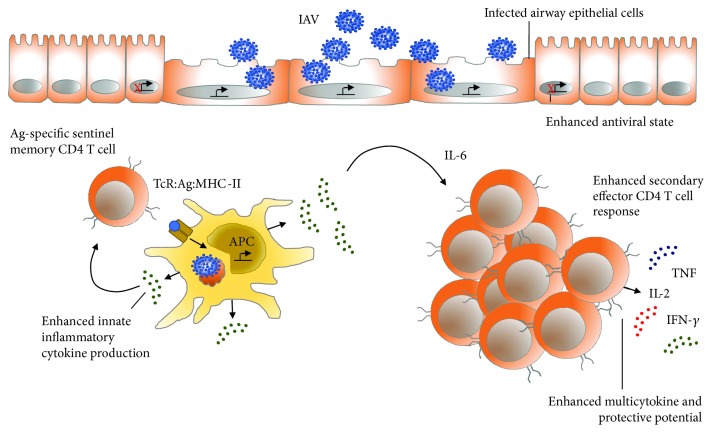Figure 2.
Memory T cells regulate the accumulation and functional potential of secondary effector T cells in the lung through antigen-specific upregulation of the inflammatory cytokine IL-6. Following secondary IAV infection, the earlier and more robust inflammatory response induced by memory CD4 T cells correlates with improved control of the virus in the lung. One innate inflammatory cytokine involved in this response, IL-6, plays a central role in maximizing the multicytokine-producing potential of secondary CD4+ T effector cells that accumulate in the lung at the peak of the recall response. Experienced memory cells thus modulate the effector functions of recently expanded secondary effector T cells that arise from resting memory T cell precursors during recall responses by inducing potent inflammatory signals.

